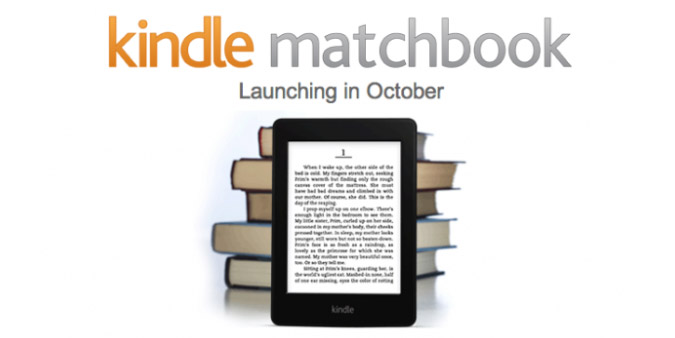I love physical media. I love being able to display the spines of the movies, video games and books I own. There’s something comforting about having a shelf full of movies or games or books to look at. It might be the sense of endless possibilities. I could go over, pluck any one thing off the shelf, and have something to do for anywhere from 20 minutes to hundreds of hours.
It’s a feeling I don’t get when scrolling through my iTunes or when browsing Netflix. Sure, both of those places have more “stuff” than all the bookshelves in my apartment could hold, but they’re really just ones and zeroes making up words and pretty pictures. There’s no sense of “home” there. But what they lack in in “home” they make up for with convenience. And that convenience is so appealing that I find myself heading deeper and deeper down the digital-only rabbit hole.
Music: Digital-Only is a Go!

I gave up on (most) physical CDs years ago. Almost all the music I buy comes from Amazon or iTunes as a download … and that’s if I’m buying music at all. (Spotify’s eliminated the need to buy almost any music, but that’s a slightly different topic for another day.) I just felt weird buying physical copies of CDs, ripping them to my computer and then never looking at the CD again. I was only interacting with the music digitally, so why bother with the physical version at all? Why go through the extra work and why take up the extra storage room? Music has gone almost fully digital. There’s no turning back.
I wish I could do the same thing for books, movies and video games. I could, but I won’t .
Books: Infrastructure Brought Down By Pricing

Most of the books I buy come from used book sales. Probably close to 90 percent of the books I own have cost me two dollars or less. Reading on a Kindle is great – and I think I’ve moved past the book snobbery of thinking a physical copy feels better – but the prices aren’t comparable. If I want to catch up on an author, I could go to a book sale and pick up ten books for ten bucks. On Kindle? It would probably cost anywhere from $40 to $140. Kindle is far more convenient – especially if you’re traveling and plan on tearing through a ton of books.
Whether you go through Amazon, Barnes and Noble or Apple, getting the books you want digitally is (usually) extremely quick and easy. The system is nearly flawless. But cost-wise, it’s just not there. Amazon is trying to help us transition to digital with the launch of Kindle Matchbook on Tuesday. Matchbook lets you pick up a digital copy of physical books you’ve bought from Amazon for $2.99 or less. But of the dozens of books I’ve bought, only three fall under the Matchbook program, and even at $2.99 they’re not titles I want to re-visit.
Movies: An Issue of Quality and Extras

Blu-ray’s quality is still unmatched by downloads, and even though Netflix is now streaming at 1080p and will soon offer 4K streaming, the color depth just isn’t there. Watch the opening scenes from Drive on Netflix, then watch them on a Blu-ray copy. If you don’t think there’s a difference, you’re lying to yourself.
Physical copies of movies and TV shows also offer bonus features, like director’s commentaries, deleted scenes and more. But physical media is catching up in this regard. Vudu has begun doing it and Netflix is talking about it … it’s only a matter of time before this hurdle is cleared. I still don’t see a time when I head to downloads only, but I’m becoming more and more okay with Netflix. I’ve found myself only buying the movies I really like. (This is still a lot of movies, but hey, what are you going to do? NOT buy Monsters University?)
Video Games: The Final Frontier

But the biggest digital vs. physical problem of all lands in the realm of video games. With the PlayStation 4 and Xbox One planning to launch in the next month, we’re entering the first generation of consoles where digital-only is a legitimate option. At least, it’s an option in theory.
Both consoles are shipping with 500 GB hard drives. A few years ago, that was a lot. Today? That’s nothing. The cheapest laptops Best Buy sells – priced at $279 – come with 500 GB hard drives. Storage is so inexpensive and so readily available that it’s mind-boggling that the Xbox One and PS4 only come with 500 GB. The Xbox One will support external storage (though not at launch) and the PlayStation 4 (like the PlayStation 3) will let you put any size hard drive in it that you want, but that’s not enough. Seriously, Sony and Microsoft? You couldn’t put in a 2 TB drive?
You might wonder why I’m making such a big deal out of storage. Here’s why. The original version of Killzone Shadow Fall was 290 GB. THAT’S RIDICULOUS. It’s been scaled down (obviously), but it’s still a 50 GB game. The new Call of Duty game, Ghosts? Yeah, it requires a 49 GB install on PS4, even when running the game off a disc.
The storage issue with these new consoles is so bad and so blatant that Polygon wonders if it might be so big of an issue that the new consoles could actually fail because of it. I don’t think that’ll be the case, but eek. It’s not fun.
Video game publishers are ready to go digital. We are, for the most part, ready to go digital, too. But the bridge isn’t there, and the gap is too far for us to cross. Maybe next console cycle.